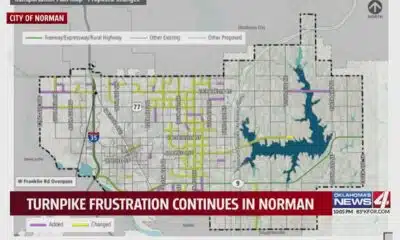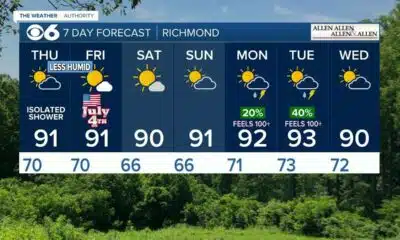News from the South - West Virginia News Feed
ACA has dramatically shifted West Virginia’s health care landscape
by Ellen Allen, West Virginia Watch
March 27, 2025
The Affordable Care Act (ACA) was signed into law 15 years ago, and it remains one of the most consequential health care reforms in our country’s history.
At the time it was enacted I was the CEO of Covenant House. We were the recipients of a small grant — awarded from West Virginians for Affordable Health Care, no less — that allowed us to act as Community Assisters. Covenant House advocates enrolled over 300 West Virginians — some of our most vulnerable citizens — in health care; for most it was the first time in their lives that they had access to health insurance.
Over the last 15 years, the ACA has expanded affordable coverage to people previously locked out of health insurance, lowered premiums and out-of-pocket costs, and helped the nation’s uninsured rate reach an all-time low. Unfortunately, dismantling it remains a top Republican priority as they look to give tax breaks to the ultra-wealthy and big corporations.
Do we really want to make it nearly impossible for West Virginians to afford health care?
The ACA protects 737,900 West Virginians with pre-existing conditions from being charged more or denied coverage by insurance companies. It guarantees free preventive care for over 217,000 West Virginians, and it allows young adults to stay on their parents’ insurance plans. More Americans than ever count on it today: a record 24.2 million Americans are enrolled in quality coverage thanks to Enhanced Premium Tax Credits (ePTC) that make health care more affordable for millions of middle-class families purchasing coverage on their own.
Millions of Americans are relying on these tax credits, but Republicans want to take them away, which would lead premiums to spike and leave 5 million more people uninsured.
I personally acquire my health care through the ACA and qualify for ePTC. I do pay my fair share: The ePTC makes health insurance more affordable for me. If the ePTC are not renewed, my combined out of pocket and annual premium costs would reach $40,000 annually. I’ll be honest, this makes my heart skip a beat.
Unless Congress acts now, premium costs will skyrocket for over 64,000 families across West Virginia, including me. On average, families would pay at least $1,404 for their premiums, and 5,300 West Virginians will lose their insurance entirely — including people who are self-employed, small businesses, older adults who don’t yet qualify for Medicare, people living in high-cost rural areas, farmers, people with pre-existing conditions and more.
Lower premium costs have helped take the pressure off families and given them more room to pay for other necessities like food, rent and gas. ACA coverage in West Virginia has more than doubled thanks to the efforts of Democrats who have worked tirelessly to protect and expand the ACA.
Yet, here we are again, standing at the edge of a health care cliff. Republicans are pushing to raise premiums and health care costs for 24 million Americans by taking away these tax credits from hard working families. From day one, Republicans have been fighting to raise health care costs, from voting against these savings in the first place to now taking them away.
Instead of protecting affordable coverage, Republicans are more focused on delivering tax breaks to billionaires and big corporations while leaving Mountaineers struggling to get by. Losing these savings would be devastating to millions who may otherwise not be able to access health care. As a result, millions of families will once again have to choose between being able to see a doctor or keeping a roof over their heads.
As the ACA turns 15 years old this month, the law is unfortunately once again in Republicans’ crosshairs while Democrats have introduced the Health Care Affordability Act to ensure health care costs remain affordable for people who buy coverage on their own. If Republicans are serious about bringing down costs, they will ensure these tax credits remain available for families for years to come, and people with pre-existing conditions can continue to afford coverage. It is time for Republicans to get on board and protect the health care of millions of Americans.
GET THE MORNING HEADLINES.
West Virginia Watch is part of States Newsroom, a nonprofit news network supported by grants and a coalition of donors as a 501c(3) public charity. West Virginia Watch maintains editorial independence. Contact Editor Leann Ray for questions: info@westvirginiawatch.com.
The post ACA has dramatically shifted West Virginia’s health care landscape appeared first on westvirginiawatch.com
News from the South - West Virginia News Feed
Judge says warrants valid in Overstreet case as trial nears for baby's 2021 murder
SUMMARY: Shannon Overstreet, accused of murdering his three-month-old baby Angel in 2021, appeared in Cabell County court as his October trial nears. Prosecutors aim to validate evidence to shorten the anticipated lengthy trial. They presented search warrants from May 2021 covering Overstreet’s homes, car, phones, computers, and Ring camera. Overstreet reportedly purchased suspicious items, including a 55-gallon barrel later found with bone fragments at his Kentucky farm. Angel wasn’t reported missing publicly until May 25th, with Overstreet arrested on unrelated charges before his December 2023 murder indictment. Judge Ferguson ruled the warrants valid but will review Overstreet’s recorded statements before finalizing evidence admissibility.
A man accused of murdering his 3-month-old baby in Huntington and disposing of her body in Kentucky in 2021 was back in court in Cabell County.
FULL STORY: https://wchstv.com/news/local/judge-says-warrants-valid-in-overstreet-case-as-trial-nears-for-babys-2021-murder#
_________________________________________
For the latest local and national news, visit our website: https://wchstv.com/
Sign up for our newsletter: https://wchstv.com/sign-up
Follow WCHS-TV on social media:
Facebook: https://www.facebook.com/eyewitnessnewscharleston/
Twitter: https://twitter.com/wchs8fox11
Instagram: https://www.instagram.com/wchs8fox11/
News from the South - West Virginia News Feed
Christian’s Morning Forecast: Lingering Showers Before Dry Streak Starts
SUMMARY: Storm Watch meteorologist Christian Boler reports lingering showers today with highs near 81°F and cloudy skies in Beckley at 64°F. Winds are light northwest at 5-10 mph. Recent severe weather and flooding are clearing, leading to a dry and pleasant rest of the week and weekend. High pressure will keep the area dry through the July 4th holiday. Temperatures will be near average, with warmer conditions on the coasts and plains, cooler in the southwest. Rain chances return Monday night into Tuesday, with clearer skies Wednesday morning. Overall, a nice stretch of dry weather is expected before next week’s storms.
FOLLOW US ON FACEBOOK AND TWITTER:
https://facebook.com/WOAYNewsWatch
https://twitter.com/WOAYNewsWatch
News from the South - West Virginia News Feed
Flash floods, street flooding impact much of the Tri-State
SUMMARY: Flash floods and street flooding have severely impacted much of the Tri-State area, especially along 4th Avenue near 25th Street in the East End of Huntington. Despite an ongoing sewer project designed to alleviate flooding, heavy rains continue to cause significant water accumulation. The flood mitigation work, intended to reduce future incidents, remains months from completion, making the area vulnerable in the meantime. Nearby Charleston also experiences flooding issues, notably during events like the Sternwheel Regatta on the river. These flooding challenges highlight the urgent need for improved infrastructure and continued prioritization of flood control measures across the region.
Flash floods and street flooding impacted much of the Tri-State on Tuesday afternoon.
For more Local News from WSAZ: https://www.wsaz.com/
For more YouTube Content: https://www.youtube.com/channel/UCrcuU0JXXy8oIBqEB13mrwA
-
Mississippi Today7 days ago
Defendant in auditor’s ‘second largest’ embezzlement case in history goes free
-
News from the South - Georgia News Feed6 days ago
Are you addicted to ‘fridge cigarettes’? Here’s what the Gen Z term means
-
The Conversation6 days ago
Toxic algae blooms are lasting longer than before in Lake Erie − why that’s a worry for people and pets
-
News from the South - Tennessee News Feed6 days ago
5 teen boys caught on video using two stolen cars during crash-and-grab at Memphis gas station
-
News from the South - Kentucky News Feed7 days ago
Error that caused Medicaid denials has been corrected, says cabinet in response to auditor letter
-
News from the South - Georgia News Feed7 days ago
GOP mega-bill stuck in US Senate as disputes grow over hospitals and more
-
News from the South - South Carolina News Feed5 days ago
Federal investigation launched into Minnesota after transgender athlete leads team to championship
-
Local News6 days ago
St. Martin trio becomes the first females in Mississippi to sign Flag Football Scholarships










































